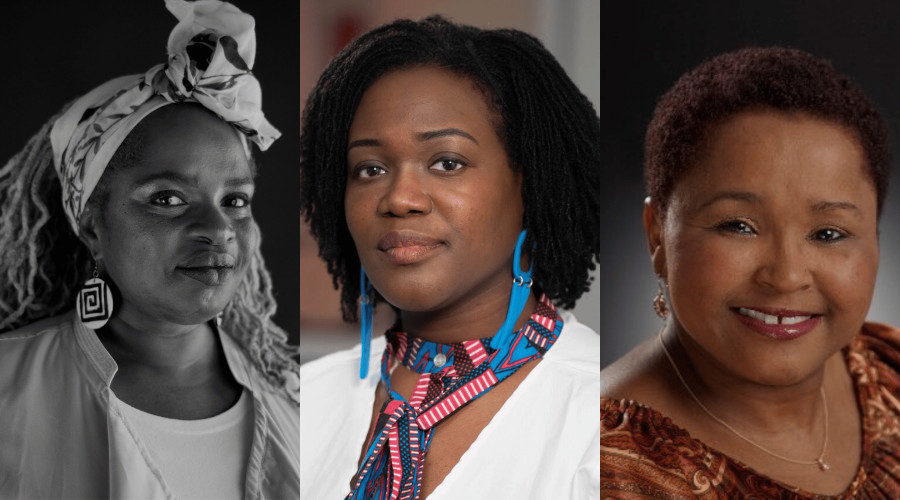This platelet disorder prevents normal blood clotting due to low platelet count. My doctor provided me with several pamphlets to learn more about ITP, but she noted, "I am sorry a lot of this material doesn’t show what it looks like on people like you (Black people)." ITP usually presents with small, bright red dots. But on dark skin like mine, it often starts as a wound bruise, and over time, like rough black or dark purple dots spread across my skin.
The doctor’s words, filled with disappointment and empathy, highlighted a significant issue: the lack of diversity in medical educational materials, especially concerning Black people in places like Canada.
Since 2019, Dr. OmiSoore Dryden and Dr. Onye Nnorom, founders of the Black Health Education Collaborative and Dr. Barbara Hamilton-Hinch, have been working on an initiative to create the first-ever Black Health Primer, which is now available to medical schools nationwide. It’s an 8-hour self-guided online course accredited by the College of Family Physicians of Canada.
Thanks to the effort of the Black Health Education Collaborative team, The Medical Council of Canada (MCC) examinations taken by medical students seeking to become licensed professionals will now include questions on anti-Black racism in healthcare. All medical students must pass this exam before they can work as doctors.
Dr. Nnorom, a family doctor and public health specialist is also the Black Health Faculty Lead in the Department of Family and Community Medicine at the Temerty Faculty of Medicine, University of Toronto. She added her insights on the inception and significance of this initiative.
{https://www.instagram.com/reel/C5f5GaBuVh8/?igsh=MXR1aWxjZXVtc2d0cg%3D%3D}
“In 2016, before the pandemic, the murder of George Floyd and the larger awareness around anti-Black racism, I took on the first role in Canada as a Black physician teaching Black health to medical students. I was the Black health team lead for the University of Toronto, and I quickly realized that there was no standardized resource on Black community health or Black population health to teach the students. There was nothing available like that. I was also tasked with teaching them this information in medical school. I also realized that when medical students learn their curriculum, everything is mapped out primarily based on the Medical Council of Canada learning tips. So that's what the whole curriculum is built up to. And then they write this exam and can get their licence afterwards. Those were two key gaps in the fact that I felt there was standardized information that should be taught across the country. There also needs to be standard learning objectives across the country."
Dr. Nnorom says that the goal of the Black Health Education Collaborative was to create educational resources and see the Medical Council of Canada develop Black health learning objectives. "Then the pandemic happened, you know, lots of things were in the air. But one thing that did happen was the greater awareness of anti-Black racism. So we ended up having a larger mandate for what our learning tools would be. So, in March 2021, we released the learning tools, which are now for medical students, but they're also practising. And over that time, we began our journey with the Medical Council of Canada. So it's a multi-year journey to ensure that Black health is in the actual Medical Council of Canada objectives.”
Dr. Dryden, a professor in the Faculty of Medicine at Dalhousie University says, “What we do know, as researchers and practitioners, is that Black people often have delayed diagnosis and care due to systemic anti-Black racism in healthcare. 'Corrections for race' have contributed to this delay, for example, in responding to kidney disease. The US has removed 'corrections for race' in kidney care, but the practice continues in Canada. This is just one example of a larger, complex issue.”
According to a research study at St. Michael’s Hospital: “In some cases, health care providers calculate test results differently for Black people than they do for everyone else. Overall, “race correction” means that Black people are diagnosed late, or never diagnosed at all, for serious conditions from kidney and lung diseases to cognitive impairment. It also means that Black people are systematically excluded from timely access to life-saving treatments like organ transplants and other surgeries.”
{https://www.tiktok.com/@joelbervell/video/7388517282193870111}
While accessing medical care, Black communities often face a lack of culturally sensitive services, medical gaslighting, and negligence. This is compounded by the underrepresentation of Black physicians, long wait times, and a healthcare system already struggling with a shortage of doctors.
The learning objectives of the Black Health Primer are among many important interventions by Black people in Canada. Last year, Nikolai Whyte and Abena Addo, co-founders of the Black Healthcare Professionals Network, launched a directory of Black healthcare professionals across Canada to help connect patients with culturally relevant practitioners.
ByBlacks journalist Hillary LeBlanc shared her troubling experience trying to access care for a reproductive condition. “A Black male gynecologist was finally able to give me a diagnosis in under five minutes,” wrote LeBlanc. “The speed with which a Black doctor was able to diagnose me, as opposed to the white women who had seen me previously, felt like systemic if not blatant racism.”
{https://www.tiktok.com/@byblacks.com/video/7305018956992007429}
Ifrah Ali, a recent graduate of Toronto Metropolitan University’s Daphne Cockwell School of Nursing Program, said she was taught about social determinants of health impacting underrepresented communities, especially Indigenous communities in Canada. However, there are gaps in learning about the impact of anti-Black racism in medicine. “In terms of what Black people are predisposed to, like hypertension, they do talk about that. But in terms of delay in healthcare, I can’t remember that. There's no specific emphasis on Black people’s experiences.”
“Including the Black Health Primer is definitely a step in the right direction to shine more light on the deeper impact of racial bias and anti-Black racism, which is a big contributing factor to optimizing healthcare,” Ali added.
This raises the question: “What has been the danger of not proactively paying attention to racial impacts on the healthcare system?”
For Alexandria Nairn, a new mom who’s also a sexual and reproductive health professional, her experience of the Canadian healthcare system has been challenging. “There have been moments where a doctor has come in and actually listened to what I was saying, but for the most part, it’s been pretty abysmal, filled with assumptions, casual racism, and sometimes direct racism.”
“When I was in the ER for pelvic pain, they brushed off the pain, saying, ‘We don’t see anything; it’s probably just fibroids.’ I was stressed out and crying, and the doctor asked why. I told him I was terrified. My sister has had fibroids. My mother has had fibroids. It’s well known or should be, that Black women have a higher incidence of fibroids and more severe fibroids. He apologized for saying it so casually and said, ‘You don’t know.’ But it’s crazy to say that offhandedly, fibroids are a serious thing, especially for Black women.”
“After I had my son, we were referred to as ‘the Blacks’ by a nurse. It’s these little examples of racism that might feel very small to some. One of the reasons I moved to Canada was to get better healthcare, to feel safe, and here I can’t even protect my son from racism within his first day of life,” says Nairn.
With this new development, how do we foresee a repaired healthcare system that pays attention to racialized/Black patients and has more detailed references on how diseases present in Black patients, as opposed to dismissing them?
“Ultimately, we hope to see better quality care for patients and physicians who understand these complexities of how our social reality can impact our health,” says Dr. Nnorom about the new objectives.
Because the objectives have been published and approved, now medical practitioners will have to learn this content because they will be tested on topics such as the impact of anti-Black racism, how anti-Black racism creates stress in our lives that predisposes us to physical and mental health issues, as well as the anti-Black racism that happens in hospitals and clinics.
“Education is necessary but not sufficient for change, so we’re hoping to be part of the ecosystem of change. That requires policy change and a fundamental understanding of Indigenous cultural safety, as well, because the concepts around cultural safety also help to provide humanistic care to Black patients and other marginalized patients,” Dr Nnorom adds.
The hope is that because this has started with the Medical Council of Canada, other bodies within organizations, or educational bodies within healthcare like nursing, occupational therapy, physiotherapy, etc, will begin to do this as well.

 By
By 


